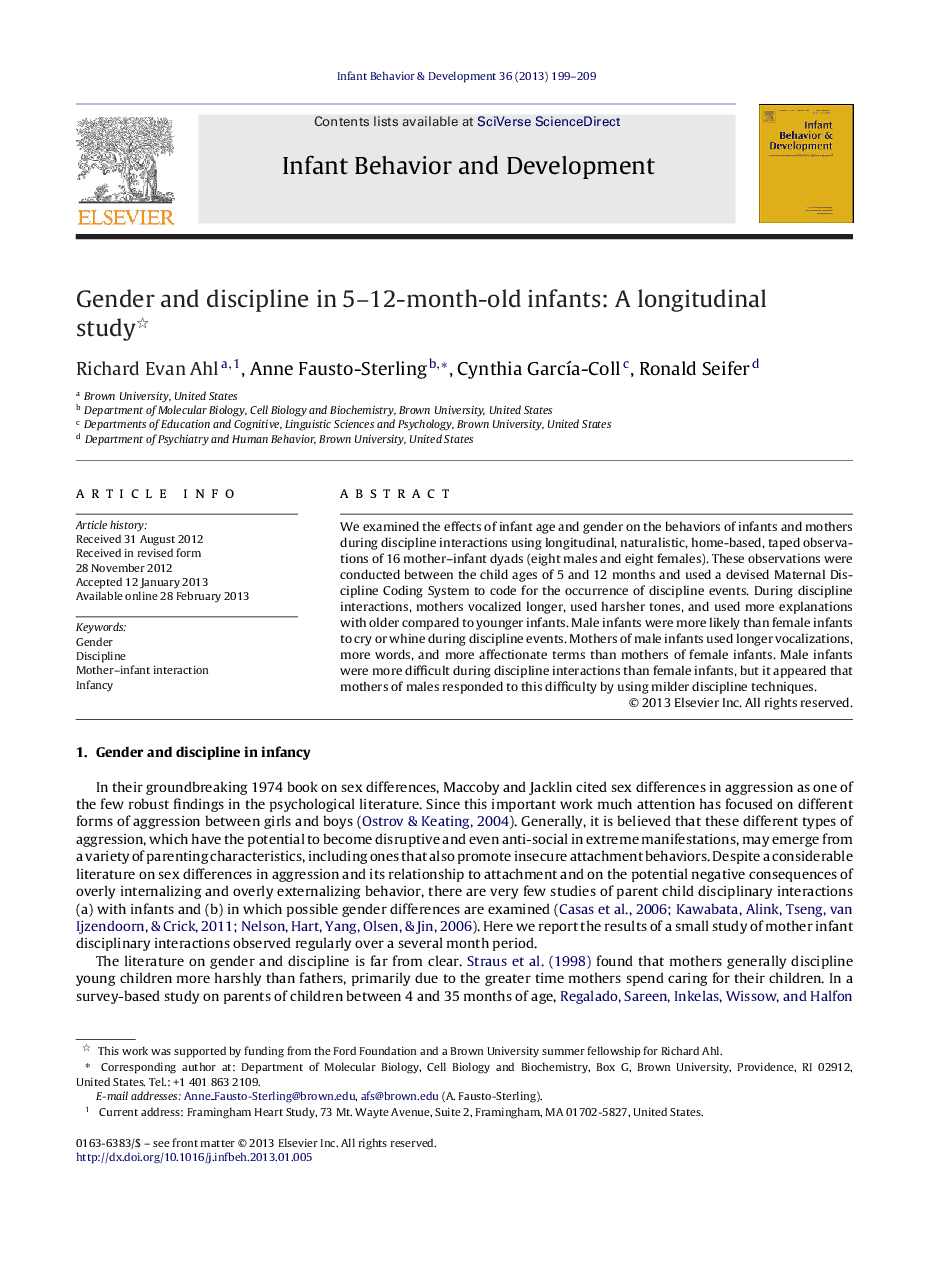| Article ID | Journal | Published Year | Pages | File Type |
|---|---|---|---|---|
| 917211 | Infant Behavior and Development | 2013 | 11 Pages |
We examined the effects of infant age and gender on the behaviors of infants and mothers during discipline interactions using longitudinal, naturalistic, home-based, taped observations of 16 mother–infant dyads (eight males and eight females). These observations were conducted between the child ages of 5 and 12 months and used a devised Maternal Discipline Coding System to code for the occurrence of discipline events. During discipline interactions, mothers vocalized longer, used harsher tones, and used more explanations with older compared to younger infants. Male infants were more likely than female infants to cry or whine during discipline events. Mothers of male infants used longer vocalizations, more words, and more affectionate terms than mothers of female infants. Male infants were more difficult during discipline interactions than female infants, but it appeared that mothers of males responded to this difficulty by using milder discipline techniques.
► We conducted a longitudinal, naturalistic study of discipline in 5–12 month infants. ► We devised new techniques for observing discipline, rarely studied in this age group. ► Male infants were more likely than females to cry or whine during discipline events. ► Mothers’ speech to older infants was longer, harsher, and used more explanations. ► Mothers of males used more speech and more affectionate speech than those of females.
